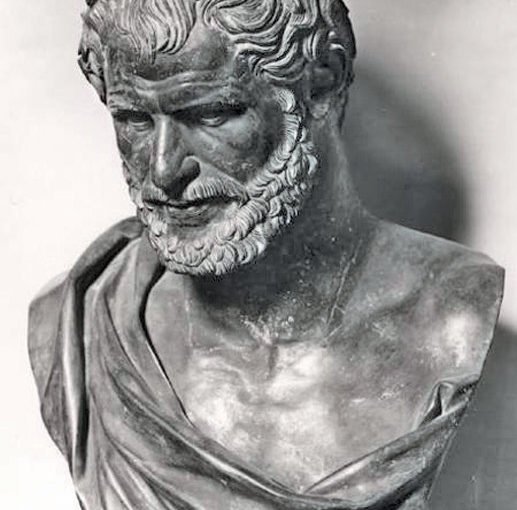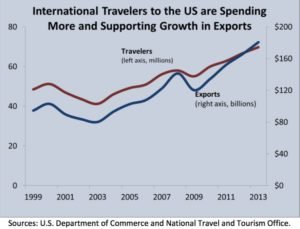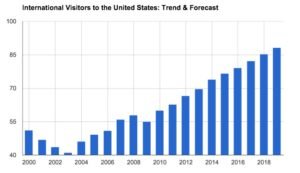How to save a generation – from itself
Having been in the workplace for a long time and having always been in the travel and tourism industry, I consider it necessary – no, a duty – to take vacations. To travel to new and exciting places and have a good time. For me, the new experiences added to my professional knowledge. They gave me more ammunition to use in persuading my customers to spend money on travel, or allowed me to help my business travelers.
Now back in pre history, without the ever-on email, global communications and such, taking break always meant coming back to uncompleted work, piles of letter, lists of folks to be called back. That was the downside. The upside was the comments about the suntan, and the ‘Don’t you look rested’ remarks. Again, being in the industry helped and most folks I worked with and for looked on travel as an educational experience.
Indeed, one company insisted that in addition to vacation time, all our employees, from the front line staff to back office specialists like accountants and maintenance people took a long haul trip once a year – we were a long haul tour operator. We provide the ticket and the time. The idea proved its worth over and over. The people we worked with were motivated, knowledgeable, rested, and loyal.
A recent report by ‘Project:Time Off’ is called The Work Martyr’s Cautionary Tale – How the Millennial Experience will Define America’s Vacation Culture. It’s available to download for free.
http://ow.ly/gsDi303tDQb
It’s a fascinating and, to be frank, depressing work. It’s worrying from the point of view of a fellow human being, but frightening for our tourism industry. Although the report studies American attitudes, I have a feeling it applies to many nations.
Apparently the definition is based on belief that:
No one else at my company can do the work while I’m away
I want to show complete dedication to my company and my job
I don’t want others to think I’m replaceable
I feel guilty for using my paid time off
The workers who fit that definition tend to be slightly more female (52%), slightly less likely to be married (55% are married, compared to 62% overall), but what is most alarming is that they are overwhelmingly Millennials. More than 43% of work martyrs are Millennial, compared to just 29% of overall respondents.
I find all this strange given that this demographic have all the tools to take vacations, yet remain ‘in touch’ if they want to. Ubiquitous internet connectivity provides the means to avoid the backlog when you get back, or the ‘not being available’ worry – if you feel unable to cut the ties for a few days.
I’ll leave you to read the report, which if you’re in any sort of supervisory position you should. The future health of your employees and your organization depends on you being the change agent to modify this crazy mentality!
I mentioned this report to my researcher-in-chief (my wife!) who lead me to a Washington Post article (http://ow.ly/VHpX303tBEr) about why Millennials apparently eat cereal. Long story short, although it’s simple to pour the

cereal out of the box, and add milk, you have to clean up the bowl and spoon afterwards! No comment on the apparent laziness of this, it’s more to do with needing to be working rather than cleaning. This also gives a reason for the massive increase in the sales of coffee pods which grew by 138,325% (yes, you read that correctly) between 2004 and 2014. I actually do approve of coffee pods, as the alternative to me was a fancy coffee machine which I felt I had to use. That resulted in way too many espressos a day….but I digress.
So the need to concentrate on work appears to be the reason for not taking vacations and not eating cereal. Interesting sociological points.
However, let me address my fellow travel and tourism professionals……
What are WE going to do about it? (The lack of vacations, not the breakfast choice)
Hopefully as they age, the Millennials will chill out and start to consider their position. They’ll realize that there’s more to life than always working, and that dedication to work and vacationing are not mutually exclusive. In the meantime we have the Boomers and Generation X to rely on. Although not for long. If this mindset continues, it could spread both up and down the generations.
How does the Industry react and how do we – who depend on people visiting our hotels, resorts, attractions, locales and areas; on using our airlines, car rentals, trains, buses etc – make the vacation experience compulsive?
It appears that Millennials only listen to their boss, with 30% saying the boss is their most powerful influencer. Boomers on the other hand list their families (25%) and their doctor (21%) as the most powerful. Only 13% of Millennials consider their doctor – which is not surprising given their age. Perhaps the Tourism Industry need to deal with the boss. Making deals with companies to persuade their employees to travel for leisure? Allowing employees to tack leisure trips on the end of business trips? Using leisure travel as a reward for good work?
I don’t have all the answers (call me for some of them!), but it is a question that our industry needs to address – maybe while you’re relaxing on vacation….









